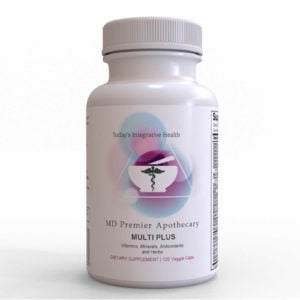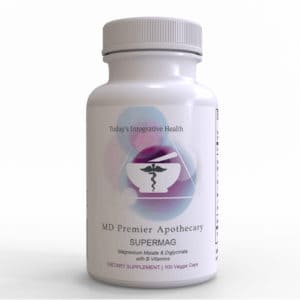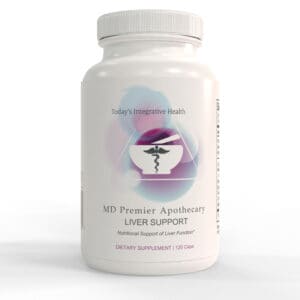Minerals are the foundation and building blocks of good health. Without the proper balance of minerals we may experience disease, or less than optimal health. Scientists have discovered that certain nutrients are vital to proper growth, and regulation of bodily functions. Minerals are divided into two categories: macro minerals and trace minerals.
While the names may be misleading, both play an equally important role in the body. The body requires more of the macro minerals, and less of the trace minerals. It is very important that the body is provided with an adequate supply of minerals in order to function properly.
What Functions Do Minerals Provide?
The macro minerals include calcium, chloride, magnesium, phosphorus, potassium, and sodium. They must be consumed, as they cannot be produced by the body. It is important to get the proper balance of minerals in the body to prevent mineral deficiencies.
Here are the functions they are responsible for:
- Calcium helps with strong teeth and bones
- Chloride keeps the fluid balance between the inside and outside of cells
- Magnesium regulates metabolism, muscle contractions, and hundreds of biochemical reactions.
- Phosphorus helps the body maintain a normal acid/base balance while working with calcium
- Potassium regulates water retention, blood pressure, and heartbeats
- Sodium is a transmitter for nerve signals throughout the body
Trace minerals and their responsibilities include:
- Chromium to metabolize protein, fats, and carbohydrates for energy while improving insulin sensitivity
- Copper as a cofactor for enzymes involved in iron absorption, energy production, and to protect the body against oxidative damage
- Iodine as a metabolism regulator
- Iron to provide energy and transport oxygen to cells
- Manganese as a cofactor for enzymes that are involved with carbohydrate, cholesterol, and glucose metabolism
- Molybdenum to assist with liver detoxification
- Selenium to create selenoproteins that play an important role in DNA production, balancing the immune system, support reproduction, and help with thyroid hormone metabolism
- Zinc to support the immune system and protect the body against oxidative stress
How Do We Get Minerals?
We must consume minerals through our diet since the body can’t produce them on its own. When you eat a diet with plenty of leafy greens, high quality proteins and fats, along with nuts and seeds, you can cover a lot of the bases.
There are supplements available that are mineral-specific; also ones that contain a wide variety of both vitamins and minerals to support the body. Drinking spring water can also provide the body with some of the minerals it needs if it’s sourced correctly.
When the body doesn’t get enough of certain minerals, there can be a mineral deficiency.
Common Mineral Deficiencies
Magnesium is a part of hundreds of biochemical reactions in your body, acting as a helper to ensure that the cells in the body are functioning properly. The body is able to convert food to energy, but without adequate magnesium the process is more laborious because the magnesium helps insulin deliver sugars into cells.
Many people don’t get adequate amounts of magnesium from food anymore because our soil is deprived of minerals.
Taking a magnesium supplement is a good way to ensure the body gets the amount of magnesium it requires. Pumpkin seeds, avocado, leafy greens, cacao, and almonds are magnesium-rich foods.
Iron is the majority of our blood, and healthy blood is a bright red color as a result of the presence of iron in the red blood cells. All of our cells rely on iron to transport oxygen from the lungs to body tissue.
Eating iron-rich foods is a good way to help ensure your body is getting enough iron. Beef, spinach, eggs, spirulina, and lentils all contain iron.
Calcium is another very important mineral for the body. Ninety-nine percent of calcium in the body is found in the teeth and bones. Magnesium, vitamin D and calcium all work as a team to maintain healthy bone density. It is especially important as you age to make sure you are getting enough of all three.
Foods that contain a high content of calcium include grass-fed dairy, tofu, bok choy, almonds and sesame seeds.
Work With Us
If you’re curious about the proper supply of minerals in your body, working with a practitioner can be a great way to ensure your body is getting what it needs. Dr. Leo and our staff at Today’s Integrative Health can help you optimize your health, and we enjoy helping our clients live their best lives. We are located at 6321 Executive Blvd, Rockville, MD 20852, in the Executive office park. Give us a call today to schedule your first appointment. We look forward to working with you!
Related Products
-
 MDPA Zinc + (100 Capsules)$22.00 — available on subscription
MDPA Zinc + (100 Capsules)$22.00 — available on subscription -
 MDPA Multi Plus (120 Capsules)$42.00 — available on subscription
MDPA Multi Plus (120 Capsules)$42.00 — available on subscription -
 MDPA SuperMag (100 Capsules)$29.00 — available on subscription
MDPA SuperMag (100 Capsules)$29.00 — available on subscription











